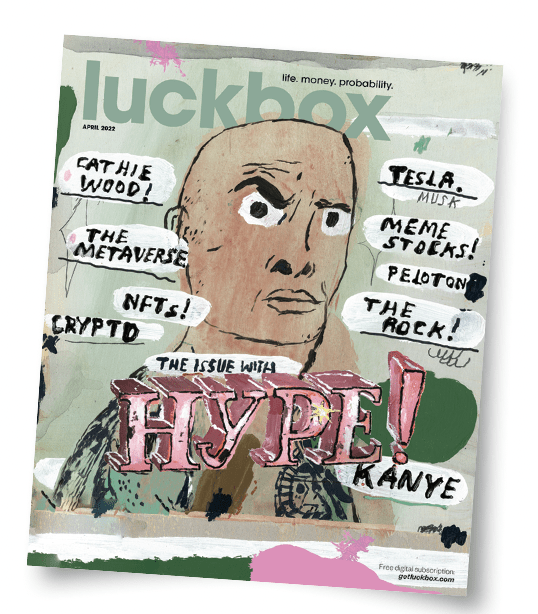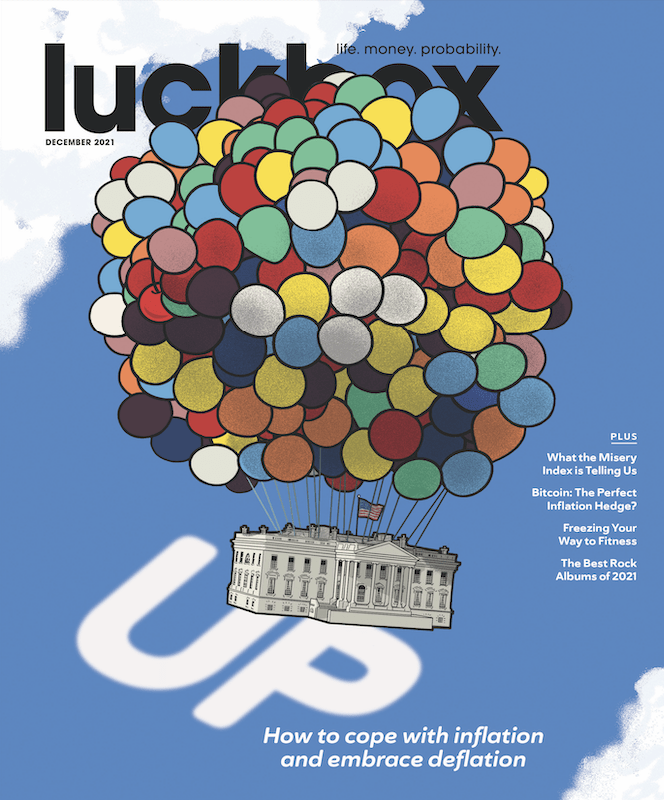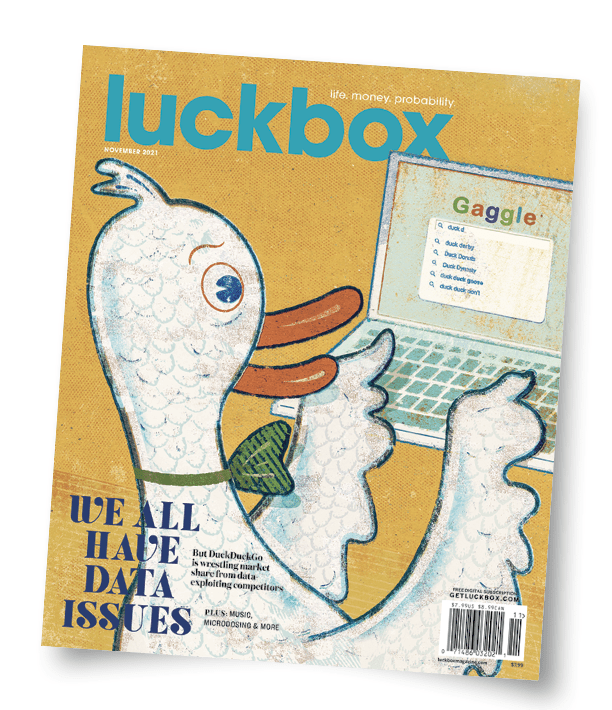Vertiv Pushed Back on A Recent Luckbox Story. Here is Our Response.
Vertiv’s points are well taken, however, they don’t ultimately change the overall analysis and outlook of the analysis.

In early April, Luckbox published an article written by a regular contributor—Andrew Prochnow—which focused on Vertiv Holdings (VRT).
The article was published under the title Vertiv Holdings (VRT): A Q1 Earnings Beat is Paramount on the Luckbox magazine website and published on Seeking Alpha under the title Vertiv Holdings: Take Profits Ahead of Q1 Earnings (NYSE: VRT).
In his article, Prochnow rated Vertiv shares a “hold” (as opposed to “buy” or “sell”) indicating that he viewed them somewhat overextended in terms of valuation. To justify that outlook, he cited Vertiv’s current price/earnings (P/E) ratio, which is more than double the industry average. He also noted that Seeking Alpha assigns Vertiv an overall valuation grade of “F,” the lowest rating on Seeking Alpha’s scale of A to F.
Prochnow is not an employee of Luckbox, nor of tastytrade or tastylive, and thus his opinions are his own.
The main points
Overall, Prochnow suggested that investors considering new positions in Vertiv approach it cautiously, considering the elevated P/E ratio, and the fact that the stock has rallied by nearly 600% over the last 52 weeks.
Not long after Prochnow’s article was published, an official representative from Vertiv challenged some of the content in the piece. The company even lodged an official dispute with Seeking Alpha, and highlighted six points they felt were mischaracterizations, or inaccuracies about their company.
At a high level, Vertiv’s challenge centered on Prochnow’s interpretation of the company’s most recent Q4 earnings report, and associated 2024 guidance. Prochnow used words such as “disappointing” and “weaker than expected” to describe that report. Immediately after Vertiv’s Q4 earnings report was released, Barron’s published an article titled Vertiv Stock Drops on Weak Guidance. AI Delivers a Rare Disappointment.
At the core of Vertiv’s argument was the fact that the company “beat” (aka exceeded) consensus expectations. In comparison, Prochnow characterized the Q4 earnings as “weaker than expected” and “nearly in line with expectations.”
Why Vertiv earnings were “disappointing”
Vertiv is correct that the company beat consensus expectations for Q4 earnings. But only slightly. And while the company may have “guided up” its internal expectations for 2024 earnings, those figures were lower than consensus expectations for Q1. That’s why Prochnow characterized the earnings report as “disappointing.”
This perspective is supported by Barron’s, which asserted, “Vertiv Holdings offered a disappointing profit forecast, pushing shares sharply lower in Wednesday trading.” In his article, Prochnow stated, “In fact, Vertiv’s Q4 2023 earnings report would be better characterized as a mild disappointment.” If anything, Prochnow offered a more favorable perspective on the Vertiv Q4 earnings report than Barron’s.
As most investors and traders are aware, earnings expectations are revised continuously according to factors such as company performance, industry trends and economic conditions. In that regard, the earnings hurdle is a moving target. If a company appears to be performing well, consensus earnings forecasts are usually increased. The opposite is true when things are going poorly. From this perspective, consensus expectations aren’t as cut and dried as they might seem.
Moreover, one can’t discount market context. If a hypothetical company consistently reported worse-than-expected financials for an extended period, and suddenly “met” expectations, that might be interpreted as a significant positive. In this example, the associated stock might benefit from a surge in interest, as well as a rally in the value of its underlying shares.
At the other end of the spectrum, the market’s best-performing stocks often must justify that level of return with stellar earnings reports. For example, if Nvidia (NVDA) was to only “meet” earnings expectations—or barely beat them—investors and traders might view that as a negative. That’s the reason Prochnow—and likely Barron’s—interpreted the most recent Vertiv earnings report as a disappointment.
What will matter to traders and investors
Vertiv’s next earnings report will carry a lot more weight than the words of Prochnow, or the writers at Barron’s.
If the company soundly beats earnings expectations during the first three months of 2024, then investors will likely respond positively, and the shares will increase in value. Prochnow rated Vertiv a “hold,” which means he thinks existing owners of Vertiv stock would benefit from that scenario.
Moreover, Prochnow recommended that existing investors—and potential new investors—consider initiating positions in Vertiv if the stock were to pull back, offering a more favorable entry point. For example, if Vertiv reported earnings that weren’t well-received by the market, or if Vertiv shares slumped as part of a market wide correction.
A promising player
Prochnow wrote that Vertiv “looks like a promising player in the AI niche” and “looks poised to benefit from rising demand for the company’s products and services.” These assertions are highly supportive of Vertiv’s future potential, even if Prochnow advised caution in the wake of the most recent earnings report, which he interpreted as mildly disappointing.
Prochnow certainly respects the fact that employees at Vertiv believe strongly in the future potential of the company. However, the last major insider share purchase at Vertiv happened on June 9 of last year, when the stock was trading around $21/share. Since June of 2023, not one insider has reported an outright stock purchase (does not include options-related activity).
On the other hand, a Vertiv insider unloaded $21 million worth of Vertiv shares on March 1, 2024, for about $70/share. And a director titled “VPE Holdings, LLC” sold a total of 30 million shares of Vertiv last August/September in two separate transactions for $34.91/share and $37.50/share.
VPE Holdings was indicated as the “parent company” of Vertiv when the latter went public via a special purpose acquisition company (SPAC) merger back in early 2020. After jettisoning those 30 million shares, VPE Holdings now owns a total of 8 million shares in Vertiv.
The Vertiv employee (or employees) who challenged Prochnow’s analysis might look within and ask why company insiders haven’t bought a single share in VRT since June 2023. Also worth exploring is why Vertiv’s “parent company” recently liquidated most of its stake.
These points are especially intriguing considering the company’s response to Prochnow’s article, which exudes an optimistic bias regarding the strength of the company’s future earnings.
To review Prochnow’s responses to Vertiv’s six points of dispute, please see the information outlined below.
Point 1
Vertiv: The company asserted that Prochnow’s description of Vertiv’s Q4 earnings as “weaker than expected” was inaccurate.
Evidence: On Feb. 21, 2024, Vertiv reported fourth quarter adjusted diluted earnings per share (EPS) of $0.56, which exceeded FactSet consensus estimates of fourth quarter adjusted EPS of $0.53.
Luckbox: Prochnow should have clarified his interpretation was “weaker than hoped” based on recent outperformance in Vertiv stock. He apologizes for any confusion and has amended the article accordingly.
Point 2
Vertiv: The company stated that Prochnow’s description of four business units at Vertiv was inaccurate.
Evidence: According to Vertiv, the company “has historically reported three global business units: Critical Infrastructure and Solutions, Integrated Rack Solutions and Services & Spares.”
Luckbox: Prochnow intended to outline four primary revenue centers at Vertiv, as opposed to the exact company divisions. He apologizes for any confusion and has amended the article accordingly.
Point 3
Vertiv: The company stated that Prochnow’s characterization of the company’s 2024 earnings guidance was inappropriate, because the company raised its own internal guidance.
Evidence: According to this source, Vertiv “expects Q1 adjusted earnings between $0.32 and $0.36 per share.” Moreover, “the company’s Q1 adjusted EPS estimate is below the Street’s forecast of $0.37 per share.”
Luckbox: Vertiv may have internally guided Q1 earnings higher, but that figure was still below Wall Street’s expectations. In Prochnow’s opinion, one could appropriately describe that situation as an incremental negative. The report from Barron’s, titled Vertiv Stock Drops on Weak Guidance. AI Delivers a Rare Disappointment supports that view.
Point 4
Vertiv: The company asserts that Prochnow mischaracterized its Q4 earnings in saying that they were “nearly in line with consensus expectations.”
Evidence: Vertiv’s Q4 earnings per share were $0.56, while consensus expectations were $0.53.
Luckbox: In the author’s opinion, “nearly in line with expectations” accurately describes the results.
Point 5
Vertiv: The company says Prochnow’s calculation of the cash ratio was incorrect, and he should have used $21 million as the figure for total current liabilities.
Evidence: The cash ratio is calculated by taking cash and cash equivalents and dividing by total current liabilities. According to the company’s own financial statements, the total current liabilities at Vertiv are $2.3 billion, not $21 million.
Luckbox: In this article, Prochnow noted that Vertiv’s total current liabilities are “about $2 billion” and correctly calculated the cash ratio.
Point 6
Vertiv: The company asserts there are 13 analysts covering Vertiv stock, not eight, as outlined in Prochnow’s article.
Evidence: According to Bloomberg (paywall), there are 13 analysts covering the stock.
Luckbox: At the time, and according to his research, Prochnow found that eight analysts covered Vertiv stock and cited the source. He has since amended that number to 13 and adjusted the low/high price targets accordingly.
Final takeaways
Vertiv’s points are well taken and helped to clarify Prochnow’s intended message. However, the above points don’t ultimately change his overall analysis and outlook.
Shares of Vertiv are up nearly 600% over the last 52 weeks, which has pushed the company’s Price/Earnings ratio to a level that’s more than double the industry average. On top of that, not a single Vertiv insider has executed an outright purchase of the company’s shares since June of 2023.
As highlighted in his original article, Prochnow thinks investors should tread cautiously with shares of Vertiv, and potentially wait for better entry points to initiate a new long position, or to build on an existing one.
Vertiv is expected to report its Q1 2024 earnings near the end of April, but the company has not yet announced the exact date.
For live daily programming, market news and commentary, visit tastylive or the YouTube channels tastylive (for options traders), and tastyliveTrending for stocks, futures, forex & macro.
Trade with a better broker, open a tastytrade account today. tastylive, Inc. and tastytrade, Inc. are separate but affiliated companies.



















